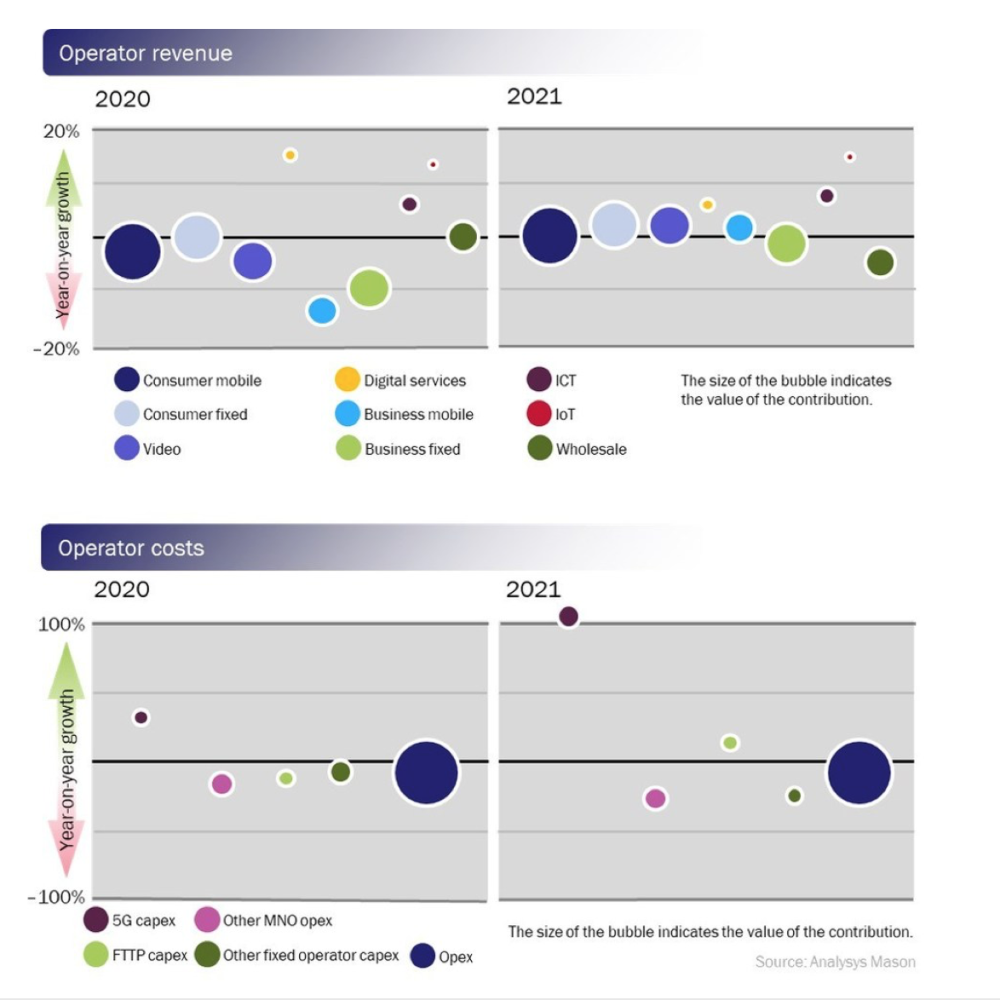Analysys Mason predicts the pandemic will mean a decline in telecoms revenue compared to 2019, returning to growth (0.8%) in 2021.
The research house had previously forecast growth of 0.7% in 2020 and 0.8% in 2021. The overall impact for operators in developed economies is ‘lost’ revenue of more than $40 billion in each year.
The impact assessment focuses on aggregate of 32 developed economies across Asia, Europe and North America. It is based on an assumed fall in GDP for these countries of 6% in 2020 followed by an increase of 4.6% in 2021.
Quantifiable
It quantifies the impact of COVID-19 on different categories of revenue – consumer mobile, consumer fixed, digital services, pay TV/video, business mobile, business fixed, ICT, IoT, wholesale – and CapEx and OpEx spend, also by category (see graphic below).
The report argues that telecoms is a relatively resilient sector and will perform ahead of general GDP trends. Analysys Mason expects telecoms to account for 2.0% of GDP in 2020, an increase from 1.9% in 2019.
“Consumer telecoms services, which account for the majority (68%) of telecoms revenue, tend to be relatively resilient during economic downturns,” said Stephen Sale, Research Director and co-author of the report, “but large increases in unemployment, business closures and the overall decrease in economic activity will cause a sharp decline in business services revenue.”
Operators should be able to limit the impact on profitability: operators’ CapEx is likely to fall in 2020 because of constrained build and disruption to supply chains. The pandemic will reinforce and accelerate existing downward OpEx trends rather than introduce new ones.

Hence profits will fall, but Analysys Mason does not expect overall EBITDA margins for the sector to decline by more than 2% points.
“Telecoms should stay healthier than almost any industry in this crisis,” said Rupert Wood, Research Director and also co-author of this report. “Telecoms should show some of the strongest post-crisis investment, in part because cashflow is more resilient in the telecoms sector than it is most others, and because some governments will emphasise 5G and fibre in stimulus packages.”



